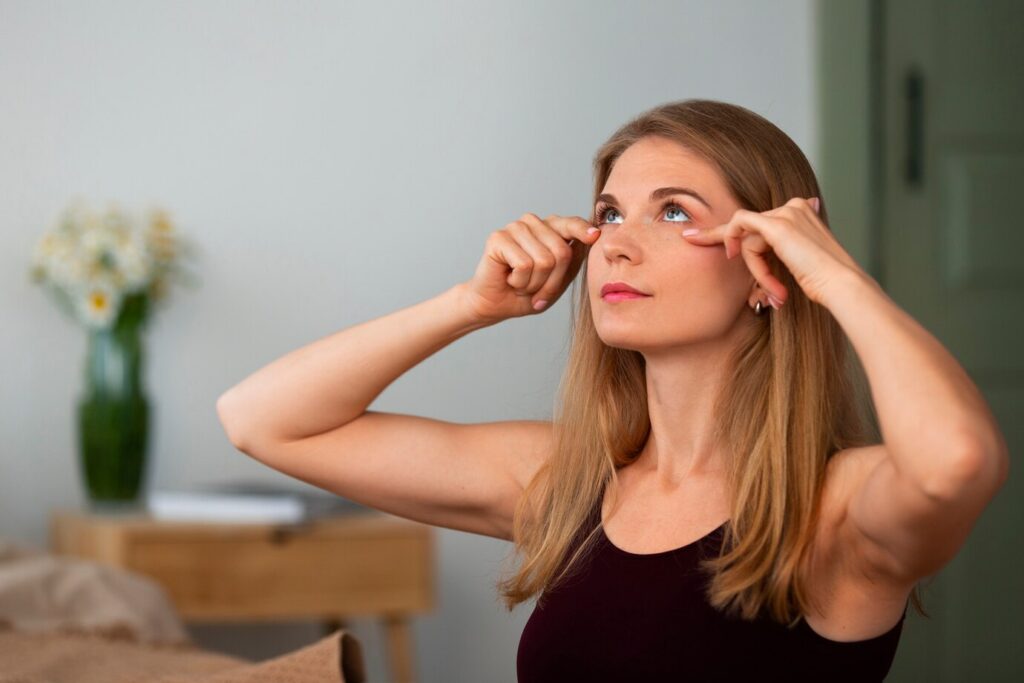Table of contents
With the growing popularity of CBD as a natural supplement, researchers and health enthusiasts alike are exploring its potential beyond pain relief and anxiety management. One question gaining attention in medical circles is: Can CBD help with eye health? As emerging studies begin to investigate this connection, it’s worth diving into the science and understanding what this could mean for individuals struggling with common eye issues such as glaucoma, inflammation, and retinal degeneration.
In this post, we explore what current research says about CBD help with eye health, how CBD interacts with ocular systems, and whether it could become part of your eye care routine.
Understanding Eye Health: A Complex System

The eyes are delicate organs made up of multiple components—retina, optic nerve, cornea, and more—that work in harmony to deliver clear vision. However, they are also vulnerable to:
- Glaucoma – a condition caused by increased intraocular pressure (IOP) leading to optic nerve damage
- Macular degeneration – age-related deterioration of the retina
- Dry eye syndrome – reduced tear production causing irritation
- Diabetic retinopathy – damage to blood vessels in the retina due to diabetes
- Inflammation and oxidative stress – underlying factors in many chronic eye conditions
Maintaining healthy eyes often involves lifestyle choices, a balanced diet, and sometimes, medical treatment. But now, with CBD entering the wellness scene, many are asking whether it might have a role to play in protecting and enhancing vision.
The Endocannabinoid System and Eye Health
To understand how CBD may help with eye health, we must first look at the endocannabinoid system (ECS) — a complex cell-signaling network found throughout the body, including in the eyes.
The ECS includes:
- CB1 and CB2 receptors, located in the retina, ciliary body, and other parts of the eye
- Endocannabinoids, naturally produced by the body
- Enzymes, which break down these compounds after use
CBD interacts with these receptors indirectly, and its effects on the eyes may involve modulating intraocular pressure, reducing inflammation, and protecting retinal cells from oxidative damage.
What the Research Says: CBD and Eye Health

Though the field is still developing, initial research and preclinical trials offer some insight into CBD’s role in eye health:
👁️ 1. Intraocular Pressure (IOP)
Increased IOP is a hallmark of glaucoma. Some animal studies have shown that CBD may actually increase IOP, which raises concerns. However, other cannabinoids like THC have been shown to lower IOP. This makes CBD’s role in glaucoma treatment controversial and complex.
Important Note: If you suffer from glaucoma, consult an ophthalmologist before using CBD.
🔬 2. Anti-Inflammatory Effects
CBD has well-known anti-inflammatory properties, which may help with eye conditions rooted in inflammation, such as uveitis or dry eye syndrome. Reducing inflammation may alleviate pain, redness, and discomfort.
🧬 3. Neuroprotective Potential
The retina and optic nerve are made up of neural tissues. CBD’s potential neuroprotective properties may help shield these tissues from degeneration, especially in conditions like macular degeneration or diabetic retinopathy.
🌿 4. Antioxidant Benefits
Oxidative stress can damage eye cells over time. CBD is a powerful antioxidant, potentially helping to reduce oxidative stress in ocular tissues, contributing to long-term eye health.
💧 5. Dry Eye Relief
Though more human studies are needed, some anecdotal reports and emerging evidence suggest that CBD’s interaction with tear production and inflammation may help alleviate symptoms of dry eyes.
How to Use CBD for Eye Health
If you’re considering trying CBD for general eye wellness, here are a few tips:
✅ CBD Oils or Tinctures
- Taken sublingually for fast absorption
- Choose full-spectrum or broad-spectrum for added benefits
✅ CBD Capsules
- Ideal for long-term supplementation
- Provide consistent dosage daily
❌ Avoid Direct Eye Application
Never apply CBD oil or any CBD product directly into your eyes. Use only products intended for oral or topical use unless approved by a medical professional.
💡 Look for Third-Party Tested Products
Always choose products that are third-party lab tested, ensuring safety, potency, and purity.
Potential Risks and Considerations
While the potential of CBD help with eye health is exciting, it’s important to exercise caution:
- More clinical research is needed, especially in humans
- CBD may interact with medications for glaucoma or other conditions
- Not all eye-related CBD claims are backed by science yet
If you’re considering CBD for eye support, always consult with your eye care professional first.
FAQs About CBD and Eye Health
While some cannabinoids may help lower intraocular pressure, CBD specifically may raise IOP in some cases. Consult a doctor before using CBD for glaucoma.
In most cases, CBD is safe when used responsibly, but it’s best to consult a healthcare provider, especially if you’re on other medications.
At this time, CBD eye drops are not widely recommended, as safety and effectiveness are not well established. Avoid any product that hasn’t been rigorously tested.
CBD interacts with the endocannabinoid system, reducing the production of pro-inflammatory compounds, which may ease redness and swelling in the eyes.
There’s no conclusive evidence that CBD directly improves vision, but it may support overall eye health by reducing inflammation and oxidative stress.
Final Thoughts: Is CBD Good for Eye Health?
The link between CBD help with eye health is an exciting but still emerging field. While early studies suggest potential benefits—particularly for inflammation, oxidative stress, and possibly neuroprotection—more research is needed before firm conclusions can be drawn.
If you’re looking to support your vision naturally, CBD may become a useful complement to your wellness routine, but it should never replace professional medical advice or treatment. Always consult your doctor or ophthalmologist before trying CBD for any eye-related concerns.





